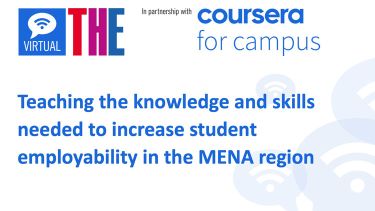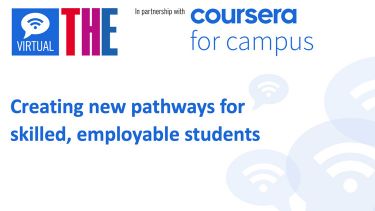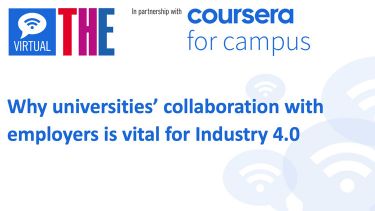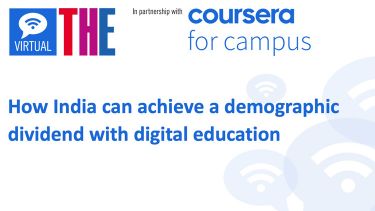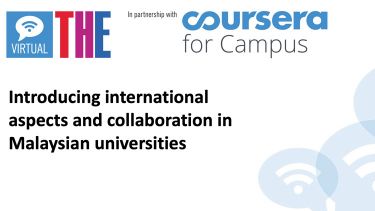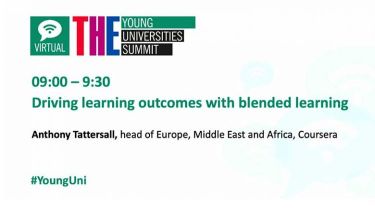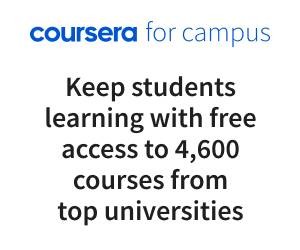
The coronavirus outbreak has changed students’ requirements and expectations – institutions with a greater focus on technology will benefit
The Covid-19 pandemic forced universities to expedite and scale their digital transformations, says Anthony Tattersall, online learning platform Coursera’s head for Europe, Middle East and Africa. Within the higher education sector, young universities arguably have an edge because they tend to be more agile than older institutions, which have an entrenched culture and can struggle to innovate.
The forced campus closures resulted in “mass experimentation”, he adds. For some institutions this meant embracing blended learning (in which online learning content is supported by teacher-facilitated interaction), while others took their courses fully online.
“In many cases, [young universities] don’t have the same historical legacy to contend with and they often have a culture or mindset that says, ‘We’re more open to doing something innovative’,” he says. Young universities are also more likely to have a greater focus on technology, resulting in higher levels of digital literacy in both their staff and students, which facilitates a smoother shift to online teaching and learning.
Since Coursera made its catalogue of online courses free to access in March, more than 14 million registered learners have joined its platform, almost a 500 per cent increase from the same period in 2019. Tattersall does not expect this uptake to disappear when the crisis is over.
“As we go into the next year or two of the evolution of the sector, we will see that the way students evaluate their options will have shifted,” he says. Students will want more flexibility in terms of degree options and to experience new learning technologies, after they have become accustomed to these during the pandemic. They will also want to ensure their employability as the world struggles through a global recession induced by the coronavirus outbreak.
“I think there is a recognition that lifelong learning is a real thing – you cannot just go to university for three years and then have a job for life,” Tattersall says. “To have long-term employability outcomes, you may have to reinvent yourself multiple times in your career.”
To keep up with students’ expectations, institutions will have to look to flexible online learning.
Flexibility, employability, and engaging online technologies will guide students’ choices of which institution to attend. “Young universities will make a step-change [in response to the pandemic] and possibly leapfrog organisations that have inertia or are resistant to change and haven’t responded as innovatively to the crisis,” Tattersall says.
Anthony Tattersall will lead the session “Driving learning outcomes with blended learning” at the Times Higher Education Young Universities webinar on 24 June 2020.
Find out more about Coursera.
















